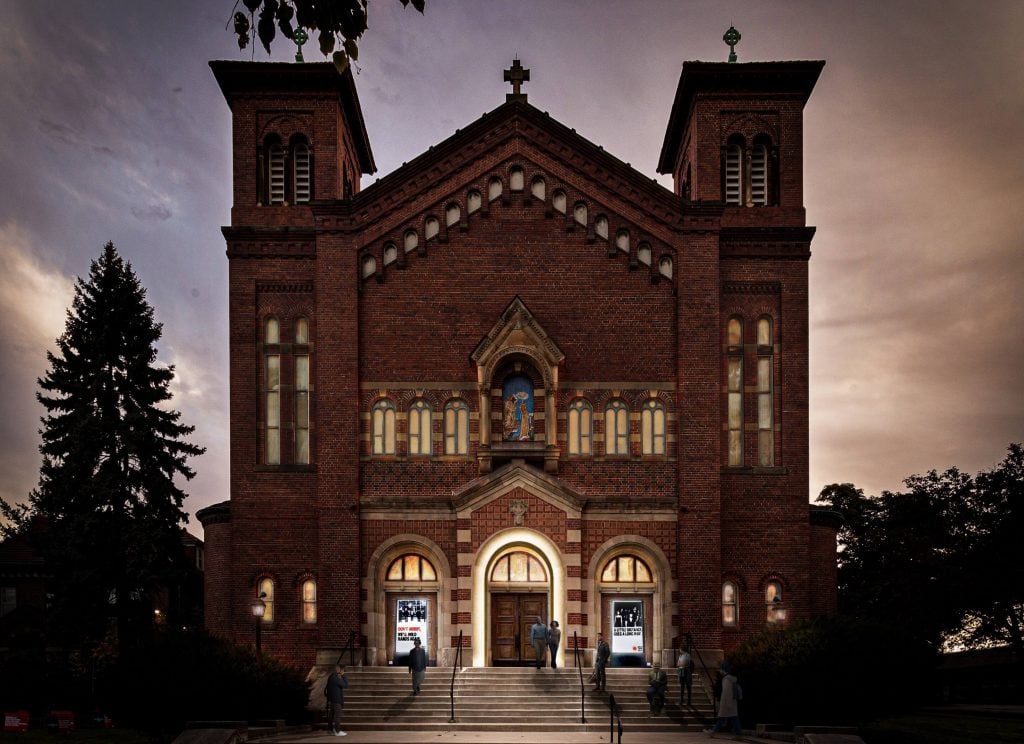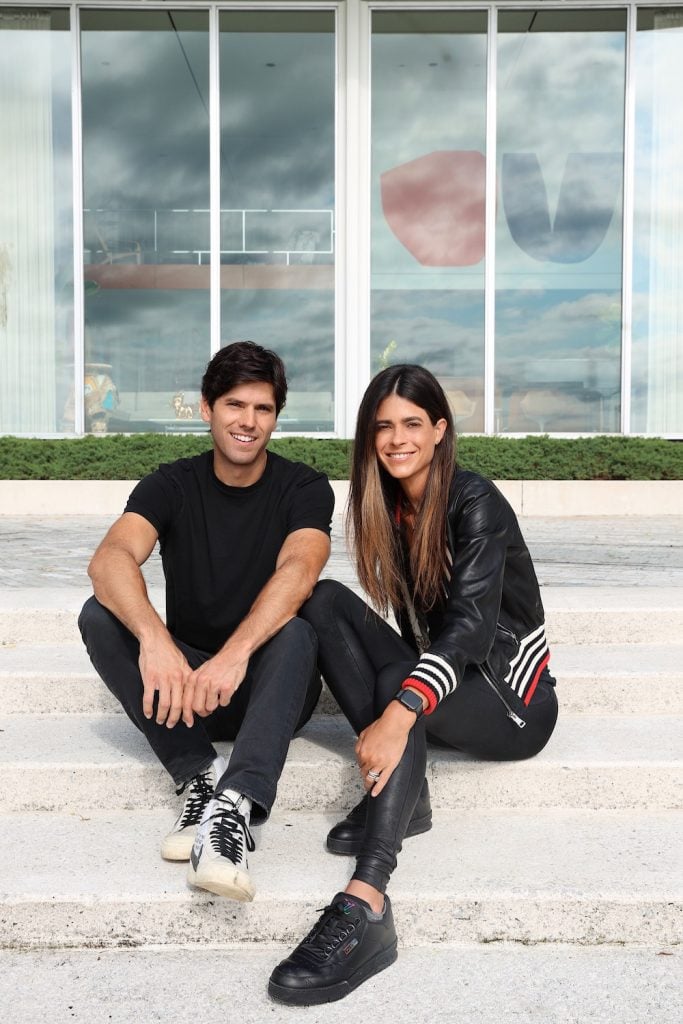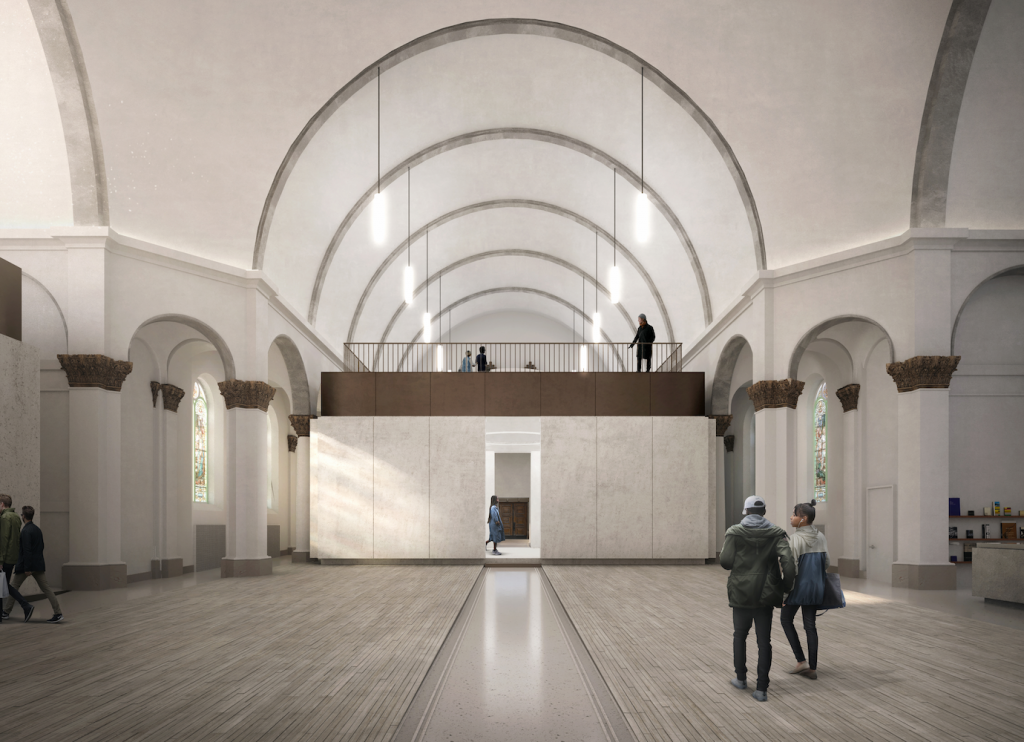Galleries
The Duo Behind Detroit’s Trendsetting Library Street Collective Is Building a New Cultural Complex in the City
Come for collaboratively curated exhibitions, stay for the skate park by McArthur Binion and Tony Hawk.

Come for collaboratively curated exhibitions, stay for the skate park by McArthur Binion and Tony Hawk.

Artnet News

Detroit is getting an ambitious new arts destination, thanks to the founders of one of the taste-making galleries in the city’s up-and-coming scene.
Library Street Collective founders—and life partners—JJ and Anthony Curis have announced that they working to establish a new cultural complex in Detroit’s East Village neighborhood. At the center of the project is the Shepherd, a 110-year-old Romanesque-style church the Curises are converting into a hybrid exhibition space that they said will “[blur] the lines between commercial gallery, institution, and community arts center.”
“We’re interested in breaking down some of the traditional barriers that have separated—and defined—the for-profit and nonprofit sectors in the art world,” Anthony Curis further explained to Artnet News.
The Shepherd—so named for the building’s former life as the Good Shepherd church—will have an in-house curatorial and support staff, but there won’t be a roster of represented artists attached to the space; instead, galleries and nonprofit organizations will be invited to stage exhibitions and other projects. “Programming at the Shepherd,” he added, “will be defined by collaboration.”
The complex, expected to open in 2023, will also host an archive dedicated to Michigan artists of color, curated by Black Art Library founder Asmaa Walton; a boutique bed-and-breakfast; a skate park designed by McArthur Binion and Tony Hawk; and a sculpture garden honoring the late Detroit artist Charles McGee. With the exception of an unspecified amount of support donated by Detroit philanthropists Dan and Jennifer Gilbert for the Charles McGee Legacy Park, the complex is being funded entirely by the Curises.

Anthony and JJ Curis.
Anthony, a former real estate executive, and JJ, who previously worked in public accounting, launched Library Street in 2012. Since then, the gallery has gained a reputation as a signal- booster for emerging talents from the Detroit region. Artists including Jammie Holmes and Jason Revok, for instance, have mounted well-reviewed exhibitions in recent years.
The seeds of their latest project go back to 2019, when Library Street Collective teamed up with the Detroit Sessions, a local nonprofit, to stage an immersive music and art performance at the church, abandoned since 2016. They fell in love with the structure, and as Anthony, a Motown native, explained, “When we thought about our next steps—and considered other cities, such as New York City or Los Angeles—we realized that we didn’t want to be anywhere but Detroit.”

A rendering of the Shepherd’s interior. Courtesy of Peterson Rich Office.
Fidelity to the city’s formidable cultural history is demonstrably a priority for the pair, who consulted with municipal figures, museum workers, and East Village locals in conceiving the project. Meanwhile, the Brooklyn-based architectural firm Peterson Rich Office was tapped to adapt, modernize, and add ADA accessibility to the existing church structure.
“Creating something both with and for the local community has been core to our plans with the Shepherd,” Anthony added. “We want to honor Detroit’s rich artistic past while celebrating its living artists and thriving culture.”